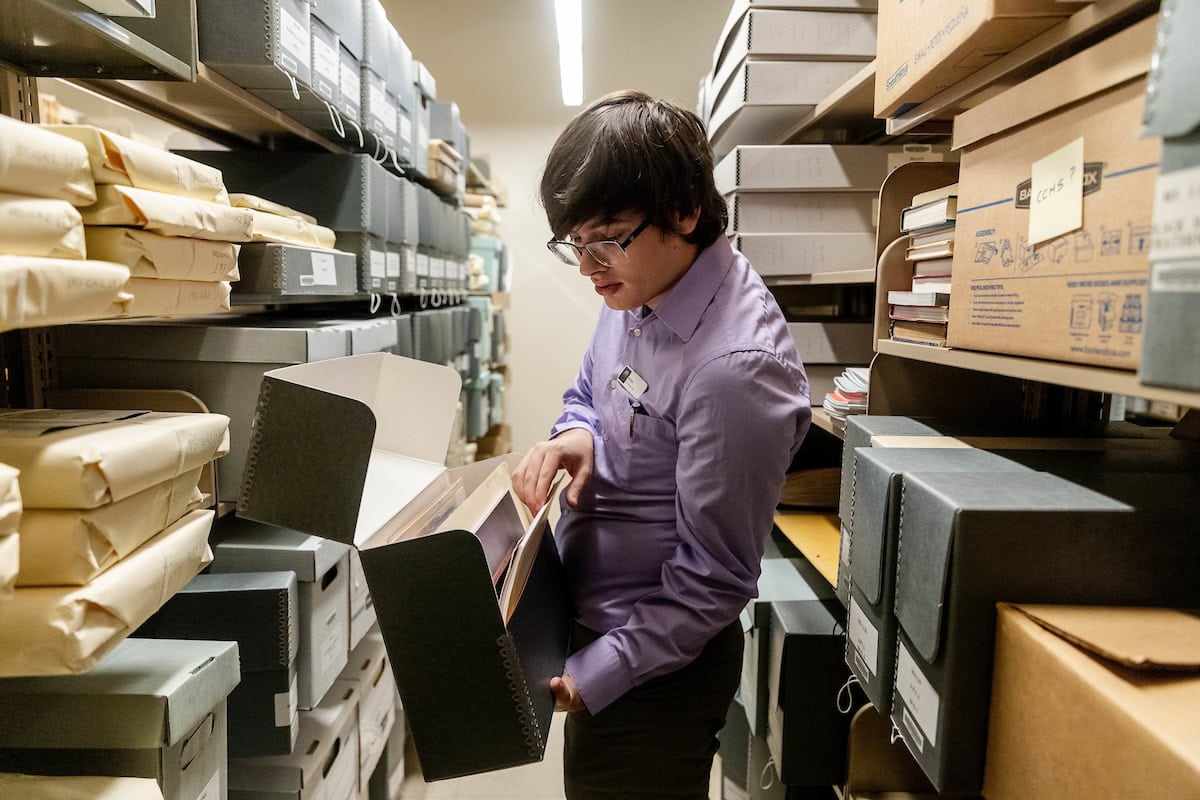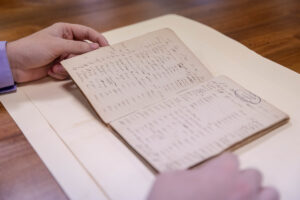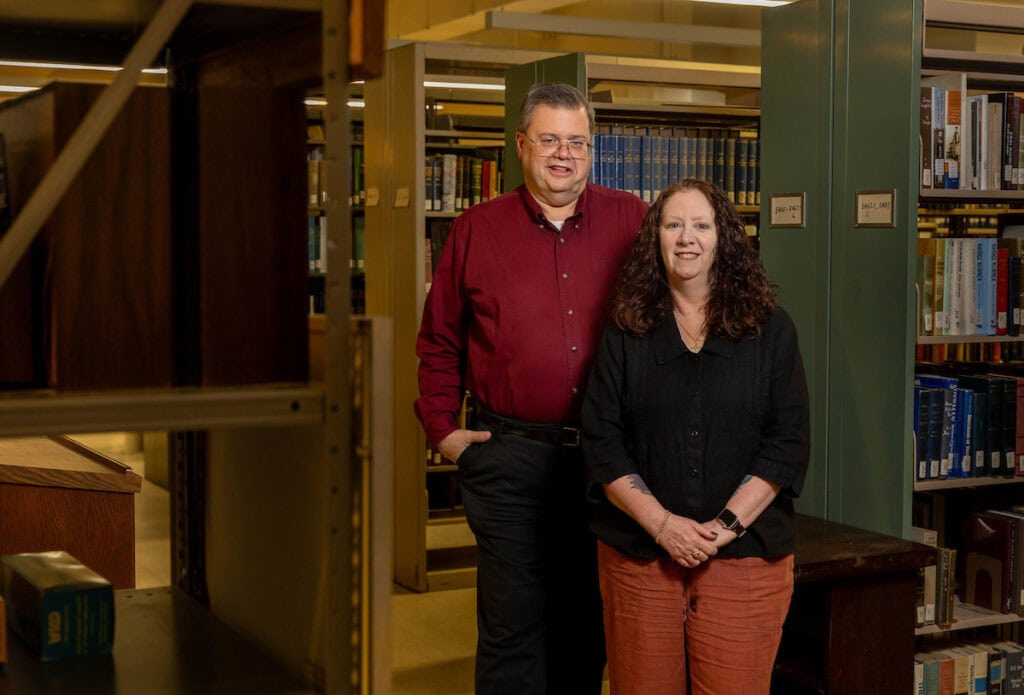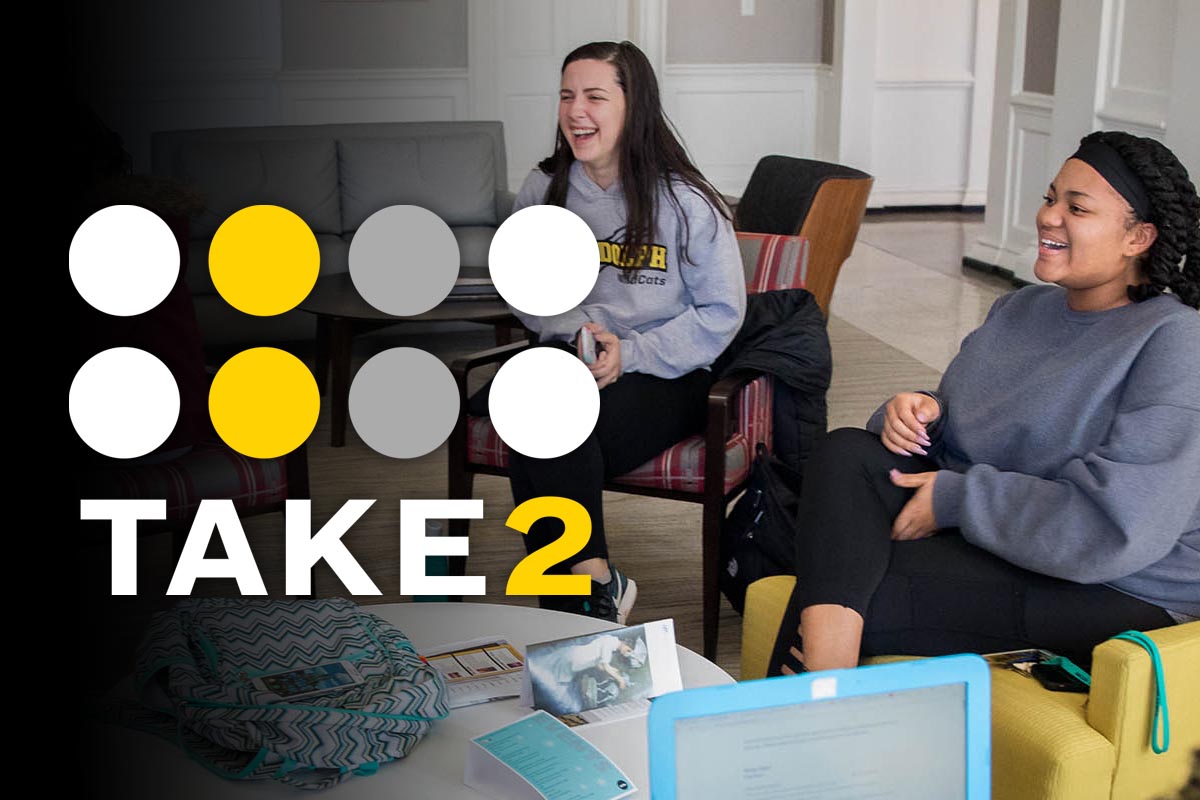College partners with Jones Memorial Library to explore legacies of slavery

Garrett Reynolds ’24 has an ongoing internship with the Jones Memorial Library.

A ledger book kept by a Lynchburg slave owner
The ledger book—kept by Seth Woodroof, a known Lynchburg slave trader in the 1830s—was a rare find.
Found in the collection of Jones Memorial Library in Lynchburg, it detailed information about the enslaved people Woodroof sold.
“This information is extremely valuable,” said Garrett Reynolds ’24, a history major who is digitizing the book as part of his internship with the library. “It’s a part of Lynchburg history that isn’t often talked about.”
In the book, Woodroof consistently used the first and last names of the enslaved and who they were sold to. It’s a unique find; most records from the time period include very little information.
“Many of the enslavers were from the Mississippi region, so it helps to track the movement of enslaved persons from the East Coast down into the deeper south,” said Lisa Lee Broughman ’94, director of Randolph’s Lipscomb Library. “It’s also something, when digitized, that can be shared on websites that help Black Americans trace their genealogy.”
As part of his internship, Reynolds transcribed the ledger book, an arduous task that involved deciphering Woodroof’s handwriting and writing style. He also scanned in images of the pages, which had to be handled with extreme care.
“The book is so old, with the earliest entries dating back to October 1833,” said Reynolds, who is now comparing the names listed in the ledger to the 1870 census, to see how many of the enslaved people were still alive at that point. “It’s made out of leather, and it’s small. The spine is disintegrating. I had to handle it very carefully.”
His work provided the foundation for a project, called “Lynchburg: Named,” that has brought together Randolph College and the Jones Memorial Library to explore the region’s legacy of slavery and fill in information gaps related to African Americans in Lynchburg.
“Issues of slavery and the enslaved haven’t really been dealt with in Lynchburg,” said Randolph history professor Gerry Sherayko. “This was much more of a slave trading city than has been acknowledged. We are not an exception. We are part of it, and our story needs to be told.”

Gerry Sherayko and Lisa Broughman ’94
This summer, Sherayko, Broughman, and Deborah Smith, executive director of the Jones Memorial Library, were one of seven teams chosen to attend the Legacies of American Slavery Public History Institute at Yale University and share information about “Lynchburg: Named.”
The institute is part of The Council of Independent Colleges’ Legacies of American Slavery project, a collaboration with the Gilder Lehrman Center for the Study of Slavery, Resistance, and Abolition at Yale’s MacMillan Center.
It included seminars, site visits, and workshops focusing on public memory and interpretation of slavery.
Teams also presented about individual projects and received feedback from each other.
“It was phenomenal to be around people from other small, liberal arts colleges who are doing, at the ground level, really good work,” Sherayko said. “Especially in a time when there are people who don’t want to talk about this very thing.”
The trio even made a connection with the new director of the Black History Museum and Cultural Center of Virginia. They’re planning a fall visit to the Richmond museum to discuss future collaborations.
Sherayko and Broughman hope the “Lynchburg: Named” project will be a starting point for developing research projects that address Lynchburg’s antebellum history, and, eventually, coverage of Black-lived experiences during the Jim Crow era and the Civil Rights movement.
They said the experience at the institute was invaluable to their work with the College’s museum and heritage studies major.
“This is important work that contributes to the community of Lynchburg,” Sherayko said, “but also feeds into the kind of work we want to do to attract students to that major.
“Our team got a lot out of it,” he added, “and I think contributed a lot to it.”
Tags: history, museum and heritage studies, Vita Fall 2023
